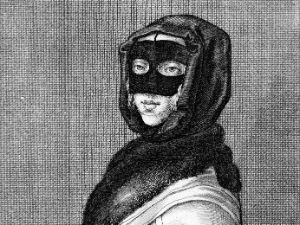Concert | Visiting Orchestras / In honour of Louis Andriessen I
Royal Concertgebouw Orchestra Amsterdam
Tugan Sokhiev, conductor
Visiting : Amsterdam

Wenceslaus Hollar, “Winter” from the seasonal cycle, copper engraving, 1644 © National Gallery Prague, Public Domain
By featuring works by Andriessen and Tchaikovsky, the programme links the history of the Royal Concertgebouw Orchestra Amsterdam with the intention of its conductor: The “Mysteriën” for orchestra were written specifically for the RCO. Tugan Sokhiev uses the extraordinary sound qualities of the orchestra to open the gate to Russian Romantic music with Tchaikovsky’s First Symphony.
Many regretted Tugan Sokhiev’s departure from the chief conductor’s position at Deutsches Symphonie-Orchester when he left for the Moscow Bolshoi Theatre in 2016 after four years in Berlin. He continues to visit the German capital at regular intervals – to work with the DSO, the Berliner Philharmoniker and now, for the first time, with an orchestra that has become a fixture at Musikfest Berlin: the Royal Concertgebouw Orchestra Amsterdam.
The programme contains a piece of history of both the orchestra and the conductor. Louis Andriessen wrote his “Mysteriën” for the Concertgebouw Orchestra’s 125th anniversary. This was a small sensation, because 50 years ago, in 1969, Andriessen had been among a group of trouble-makers who disrupted a concert by the orchestra because they considered its programme policy to be anti-modern and reactionary. They were made to leave the concert hall. Andriessen did not write any more orchestral work for more than 40 years – until the RCO-anniversary. He drew inspiration for the six movements of the “Mysteriën” from one of his late father’s favourite books: “De imitatione Christi” by the mystic Thomas a Kempis (1380-1470). Following his conviction that religion, art and philosophy converge in the creative spirit of mankind, he practised the art of transformation: the transformation of ideas from one discipline of the mind into fantasies of another.
Sokhiev was trained in the Russian school of conducting of Ilya Musin and achieved his first great successes at the Mariinsky Theatre in Saint Petersburg. For his years in Berlin, he had set himself the goal of giving his audiences an idea of the breadth of Russian music – including the early Tchaikovsky. The composer had been quite happy with his First Symphony, apart from several “immature passages” and counted it among his best works.
Concert Programme
In honour of Louis Andriessen I
Louis Andriessen (*1939)
Mysteriën for orchestra (2013)
German Premiere
Pyotr Ilyich Tchaikovsky (1840 – 1893)
Symphony No. 1 in G minor op. 13 (1866)
“Winter Daydreams”
Cast
Royal Concertgebouw Orchestra Amsterdam
Tugan Sokhiev – conductor
A Berliner Festspiele / Musikfest Berlin event
The performances “In the honour of Louis Andriessen I-III“ on 2, 4 and 5 September are supported by the Ernst von Siemens Musikstiftung and the Aventis Foundation.